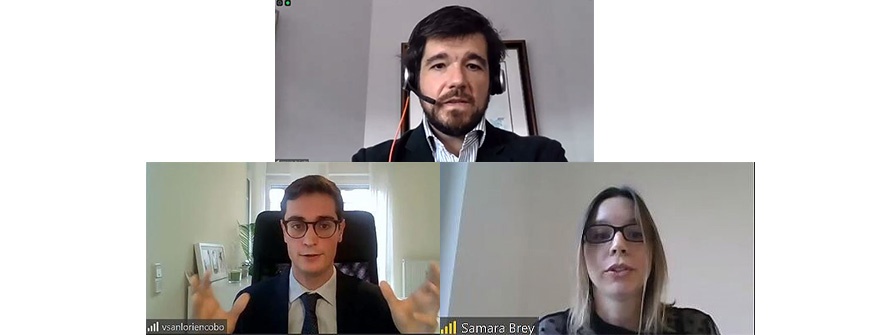Webinar: Substance requirements and future application of the MLI to Spanish infrastructure and real estate structures
On November 12th, the Official Spanish Chamber of Commerce in Belgium and Luxembourg organized a webinar on “Substance requirements and future application of the MLI to Spanish infrastructure and real estate structures” in collaboration with Deloitte Luxembourg, with the participation of three experts from Deloitte in this area: Francisco Da Cunha (Partner), Samara Brey (Senior Manager) and Victor Sanlorien (Senior). The webinar took place within the framework of the Spanish Financial Forum, a committee of the Chamber focused on the financial services industry.
Marta González Benguria, General Secretary of the Chamber, who acted as moderator of the event, introduced the speakers and thanked them for their participation.
Francisco da Cunha then took the floor and thanked the Chamber for the invitation and all the attendees for their interest in the event. The speaker began by explaining the concept of ‘Substance’ in the context of tax treaties against double taxation and how this concept has evolved throughout the different versions of the treaties in terms of impact and coherence.
Samara Brey went on to discuss the Multilateral Instrument (MLI), which is currently operational in 94 different jurisdictions including Spain and Luxembourg. She explained what steps were needed for the MLI to apply to a Double Taxation Convention between two countries and what the minimum standards were that countries could not change. Samara also explained the principle purpose test (PPT), the test which seeks to determine whether treaties to which the MLI applies are not used to create opportunities for non-taxation or reduction of taxation. Therefore, Brey recommends that companies document that their operations have a substance and legitimacy that goes beyond mere tax reasons. The rapporteur went on to talk about the Danish Cases, and the case law they have created.
Victor Salorien spoke about the interpretation of these rules by the Spanish administration and justice and in particular the interpretation of the term ‘substance’ in Spain and Luxembourg respectively.
After the presentation, a question session was opened during which the attendees were able to raise all the doubts that had arisen during the event.
From the Official Spanish Chamber of Commerce in Belgium and Luxembourg we would like to thank Deloitte Luxembourg and the speakers for their collaboration in organising the webinar.
In collaboration with:




